UBA presented results of the 2nd Phase of the Project "The Trial Monitoring in War Crimes Cases"
On June 26, the Ukrainian Bar Association presented the results of the second phase of the "The Trial Monitoring in War Crimes Cases" Project, which took place from December 2023 to May 2024. UBA is implementing this project under a grant agreement with the USAID Human Rights in Action Program, which is being implemented by the Ukrainian Helsinki Human Rights Union (UHHRU).
The International Bar Association (IBA) and the International Bar Association's Human Rights Institute (IBAHRI) are collaborating with UBA on this project, providing expert and technical assistance on international law and human rights issues.
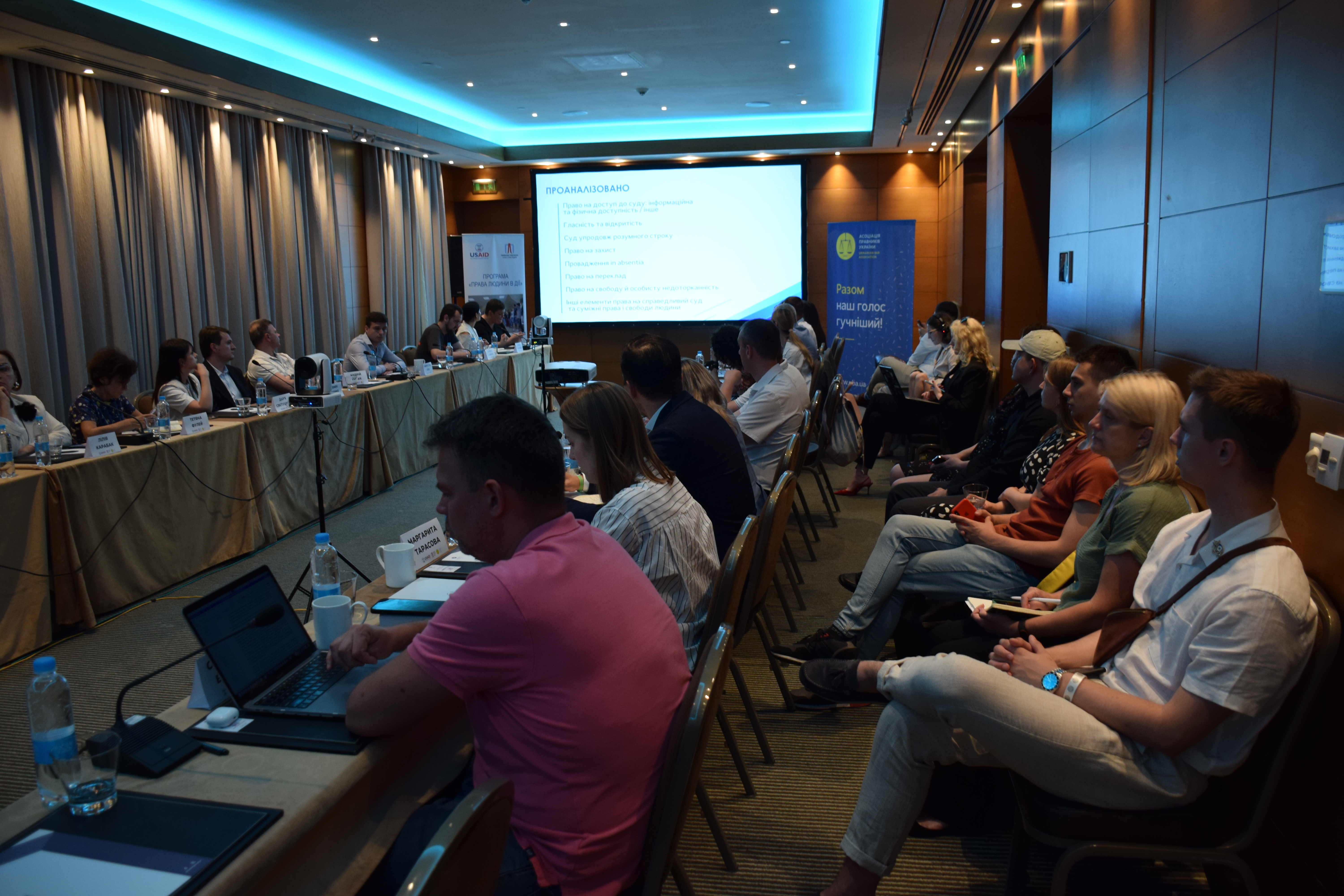
Participants were welcomed by Mykola Stetsenko, President of UBA and Managing Partner at AVELLUM. He noted that with the onset of Russia's full-scale war against Ukraine, the national criminal justice system faced the need to efficiently and promptly handle a large number of war crimes cases. Since February 24, 2022, over 129,000 crimes have been registered under Article 438 of the Criminal Code of Ukraine ("Violation of the laws and customs of war"). These war crimes proceedings were the subject of thorough monitoring under this project.
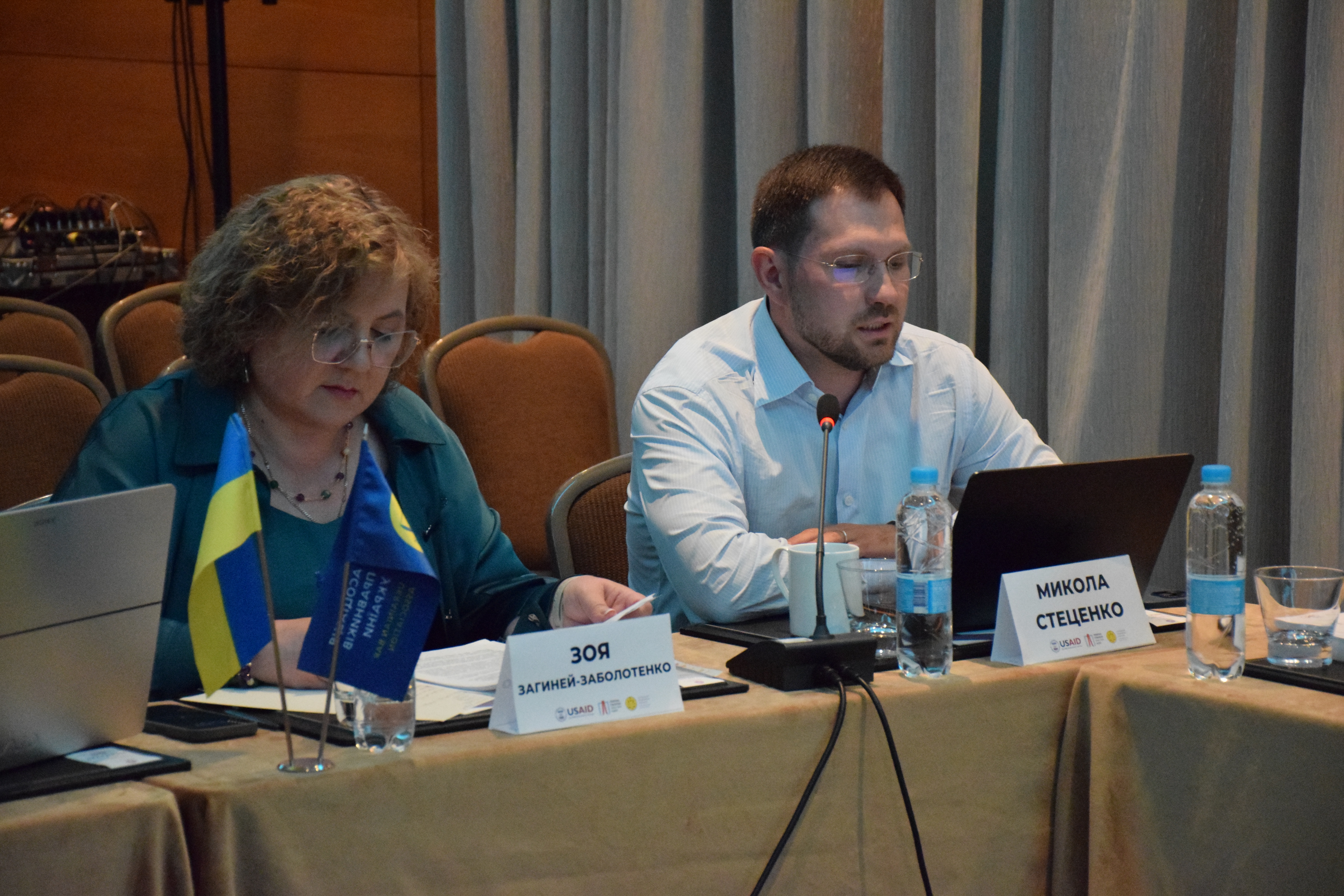
According to Mr. Stetsenko, the project's goals are to:
- ensure effective applied current analysis of war crimes proceedings for compliance with international requirements, particularly all components of the right to a fair trial (courts, the role of prosecutorial bodies, quality of defense for the accused, etc.);
- develop clear analytical and statistical data on compliance with international standards at the national level, particularly the right to a fair trial in criminal proceedings for war crimes;
- identify both systemic and isolated positive and negative phenomena regarding compliance with international standards in war crimes proceedings, draw the legal community's attention to problematic aspects, and initiate possible solutions.
Mr. Stetsenko emphasized the significant role played by the Office of the Prosecutor General, the Supreme Court, the High Council of Justice, the Council of Judges of Ukraine, the State Judicial Administration of Ukraine, the National School of Judges of Ukraine, the Coordination Center for Legal Aid Provision, as well as courts and prosecutors' offices across Ukraine in implementing the monitoring at the national level.
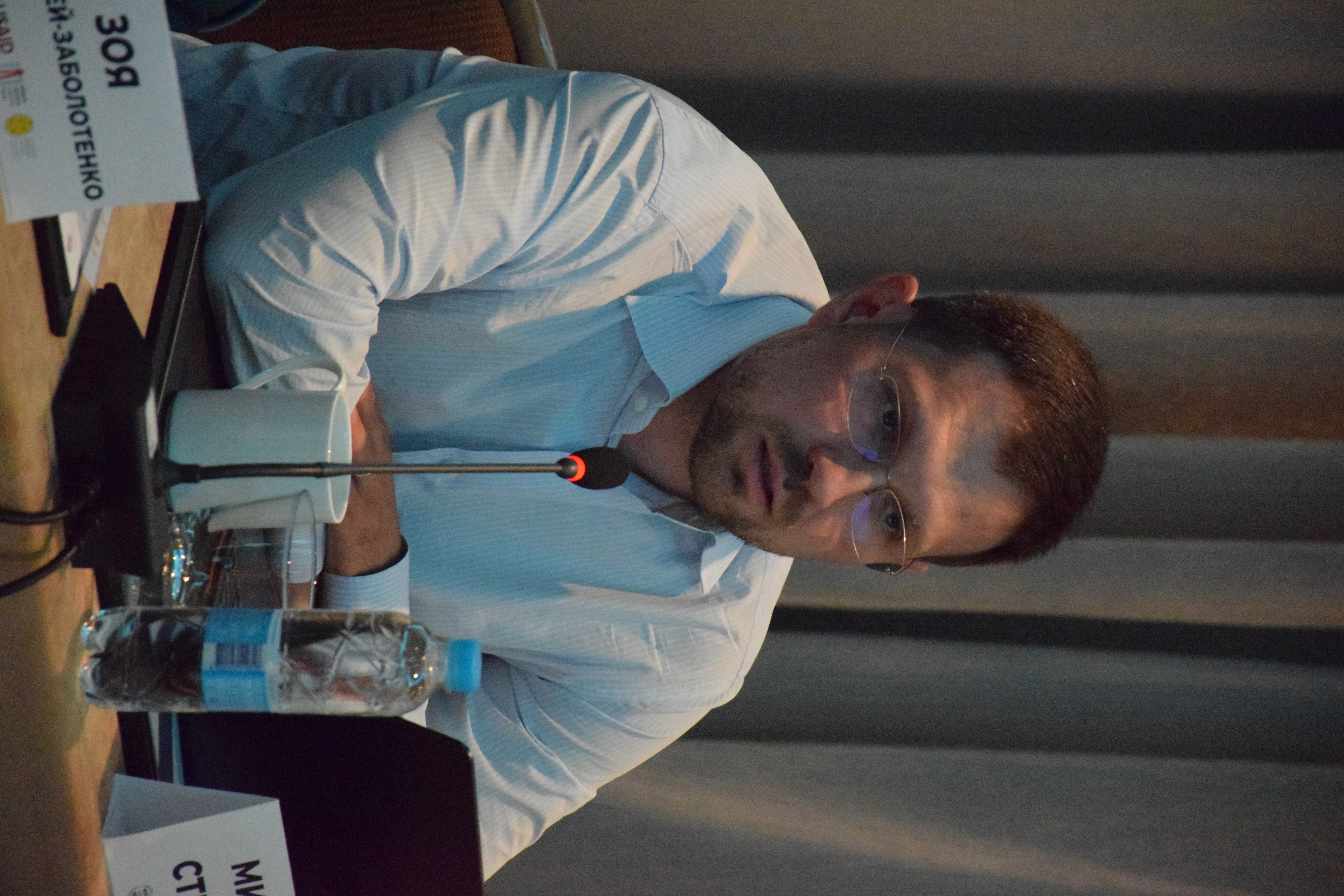
During the first phase of the project, an international team of legal experts formed by IBA and IBAHRI, together with UBA, prepared a Monitoring Methodology and Questionnaire, based on the IBAHRI Guidelines for Monitoring Trials. In the second phase, the Methodology and Questionnaire were refined.
Additionally, the second phase involved analyzing verdicts in war crimes cases from October 2023 to May 2024.
Olha Salenko, National Expert for Phase 2 of the Project "The Trial Monitoring in War Crimes Cases", Ph.D. in Law, Associate Professor at the Department of Justice, Institute of Law, Taras Shevchenko National University of Kyiv, noted that the monitoring covered courts in Kyiv City and Kyiv region, Dnipropetrovsk, Zaporizhzhia, Mykolaiv, Odesa, Sumy, Kharkiv, Kherson, Cherkasy, and Chernihiv regions where war crimes cases are heard.
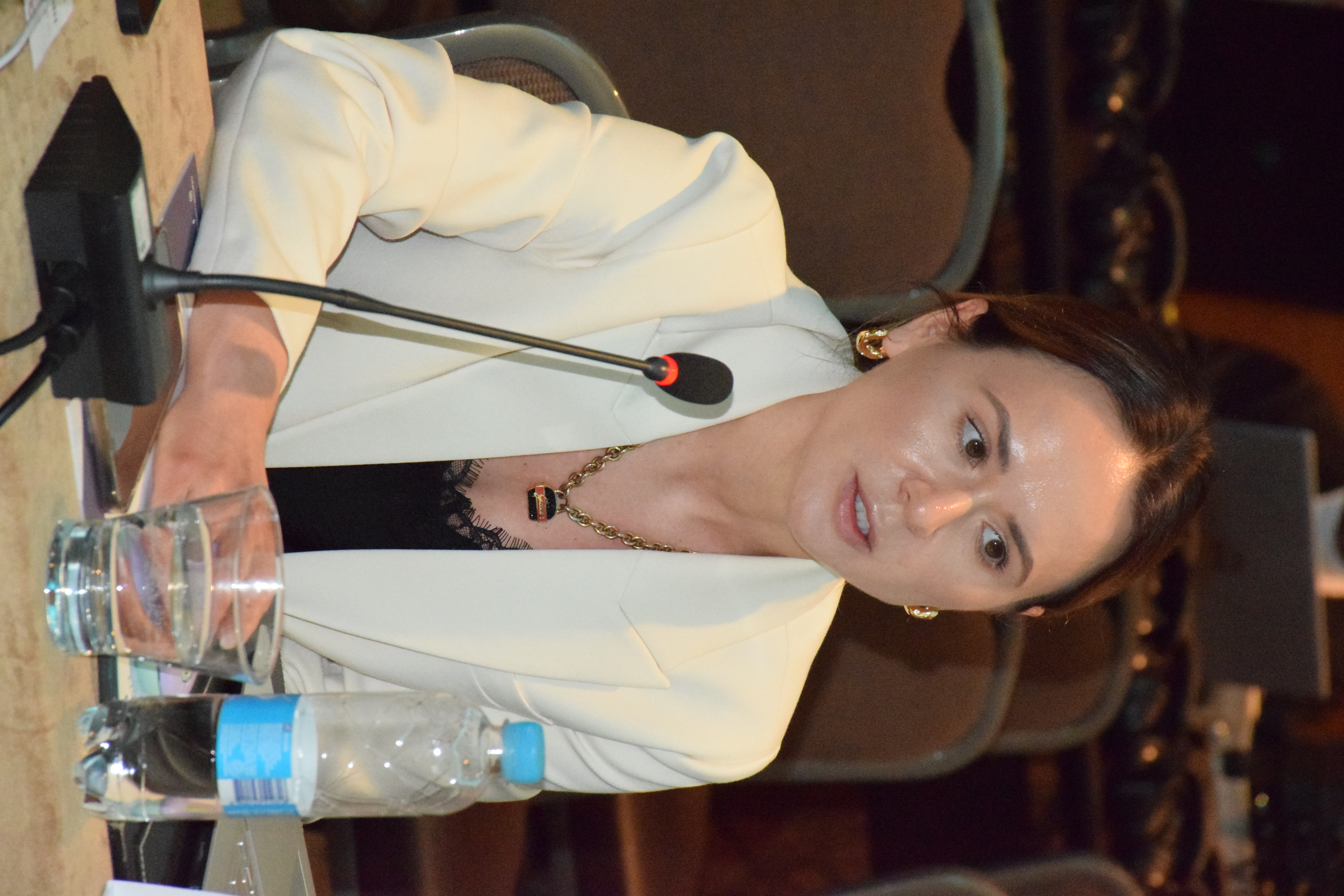
The majority of war crimes proceedings under monitoring were in courts in Kyiv City and Kyiv region (about 43% of all monitored cases).
The UBA monitoring team consisted of two national experts and 18 monitors, who are lawyers with experience in criminal law. The monitoring included court visits and the completion of the Questionnaire. During the second phase, monitors attended 606 court sessions in 172 unique cases.
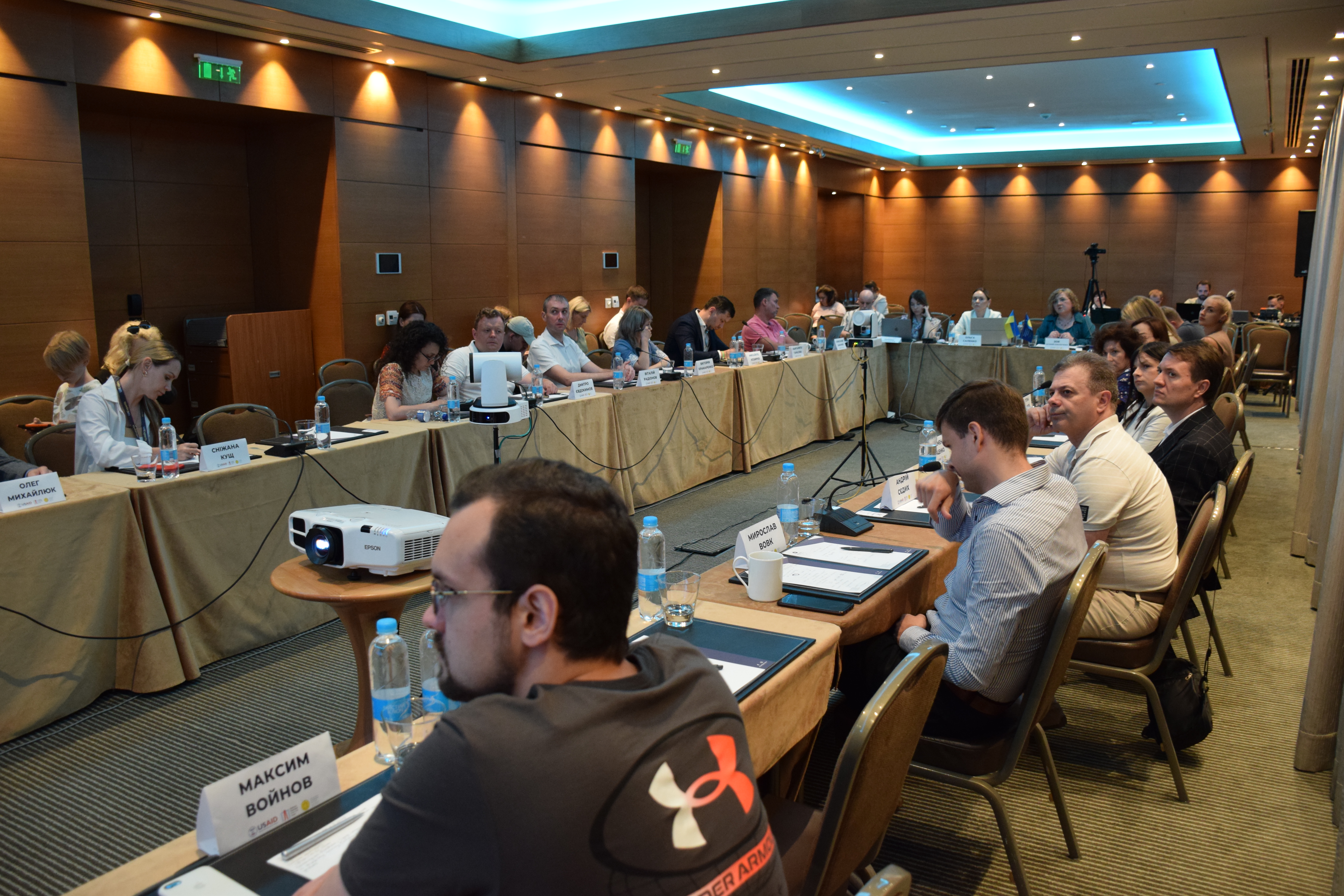
Based on the monitoring, relevant conclusions and recommendations were formed regarding the implementation and assurance of all elements of the right to a fair trial in war crimes proceedings. Specifically, the project recommends:
- improving the search system "List of court cases scheduled for hearing" and providing article-based search criteria for scheduled cases;
- ensuring timely data entry into court session schedules in relevant information funds;
- standardizing the practice regarding the procedure for admitting media and the public to court sessions;
- coordinating the development of a unified approach by courts to the consideration of cases in closed proceedings;
- addressing the issue of staffing shortages in courts through effective measures by judicial governance bodies (High Qualification Commission of Judges and High Council of Justice), thereby alleviating the critical workload on judges;
- improving the provision of legal aid in war crimes cases;
- providing training opportunities for lawyers handling war crimes cases and considering the specialization of lawyers;
- organizing awareness campaigns to distinguish between clients and lawyers; providing psychological support to lawyers; ensuring effective security measures for lawyers.
Zoia Zahynei-Zabolotenko, National Expert for Phase 2 of the Project "The Trial Monitoring in War Crimes Cases", Head of the Department of Criminal Law, Criminology, and Judicial System at the V.M. Koretsky Institute of State and Law of the National Academy of Sciences of Ukraine, Doctor of Law, Professor, shared the results of the analysis of court decisions in war crimes cases. As of now, 88 decisions under Article 438 of the Criminal Code of Ukraine have been made by courts, with about a third being appealed and some decisions taken to the cassation stage.
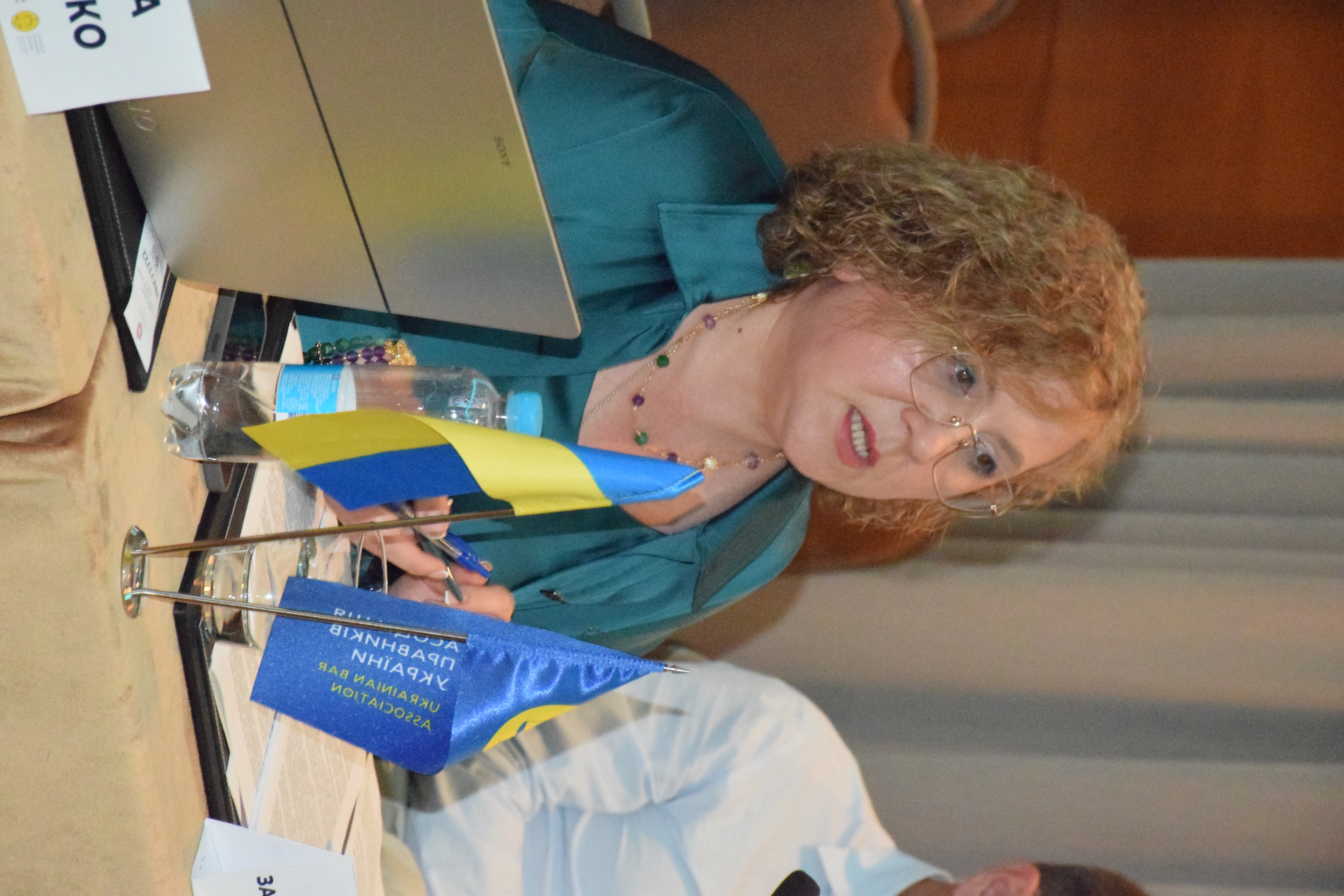
In the second phase, 35 verdicts were analyzed, all of which were convictions. The Chernihiv District Court of the Chernihiv region had the most final decisions.
Ms. Zahynei-Zabolotenko highlighted several points from the analysis:
- Generally, qualifications in war crimes cases are only made under Part 1 or 2 of Article 438 of the Criminal Code of Ukraine, without reference to Article 28, which concerns forms of complicity. According to her, qualification with reference to Article 28 would correspond to the fundamental principles and social danger of these crimes and activate the national counteraction mechanism.
- Significant attention in many decisions is given to victims.
- Sentences related to gender-based violence can be distinctly identified.
Zoia Zahynei-Zabolotenko also noted that the quality of court decisions analyzed in the second phase is higher compared to those analyzed during the first phase.
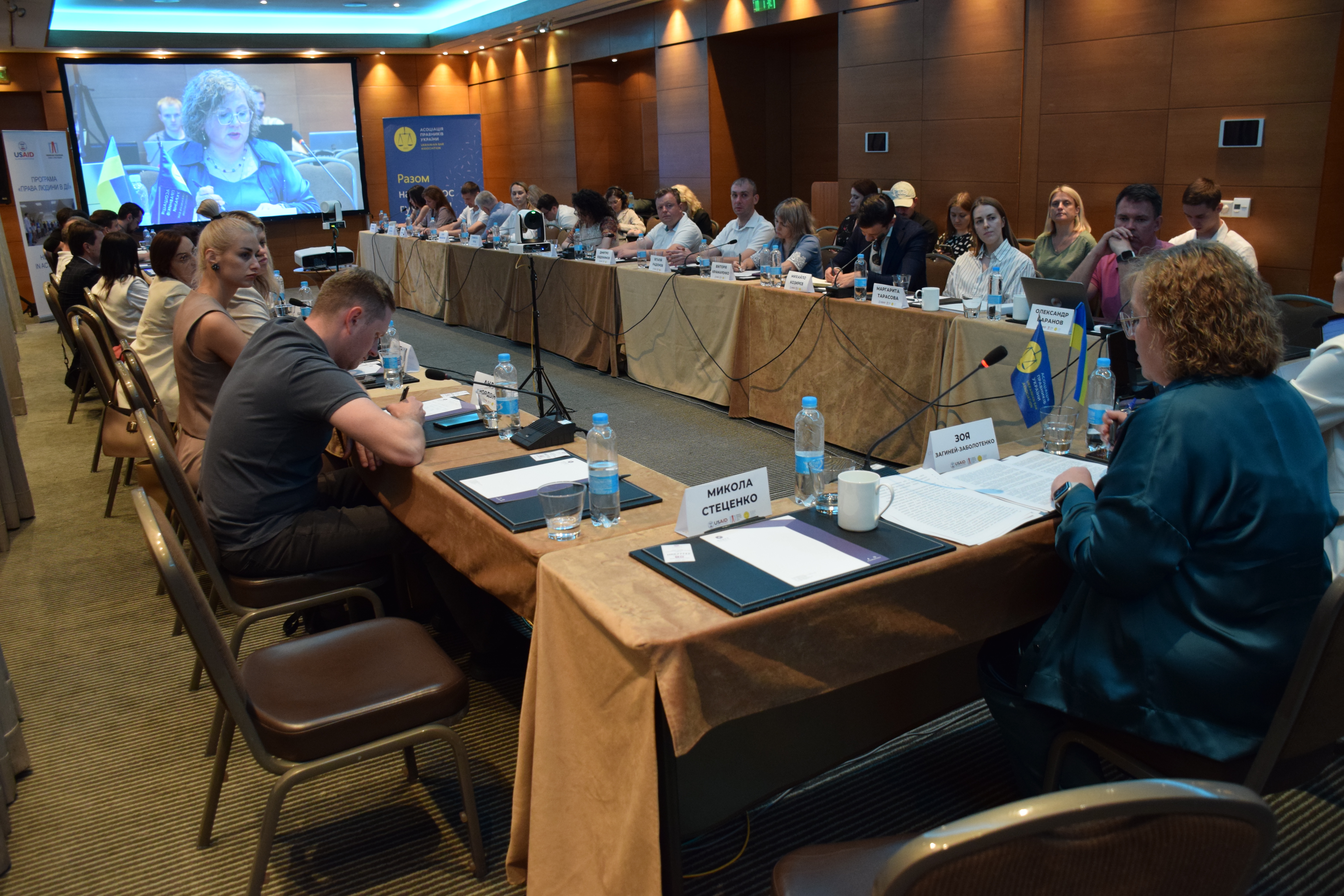
After the presentation, the results of the second phase were discussed in a roundtable format, allowing participants to comment, ask questions, and engage in dialogue with the experts.
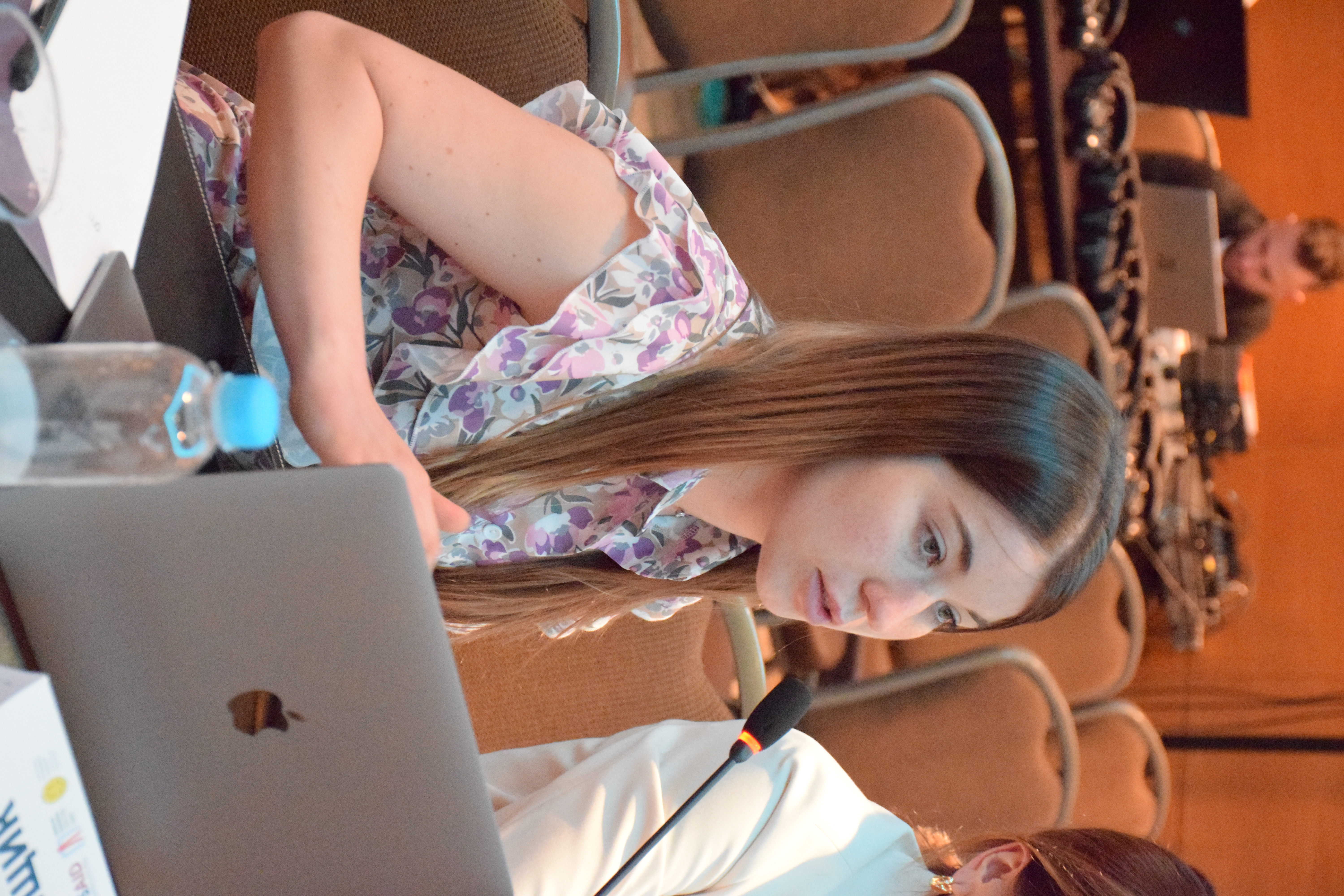
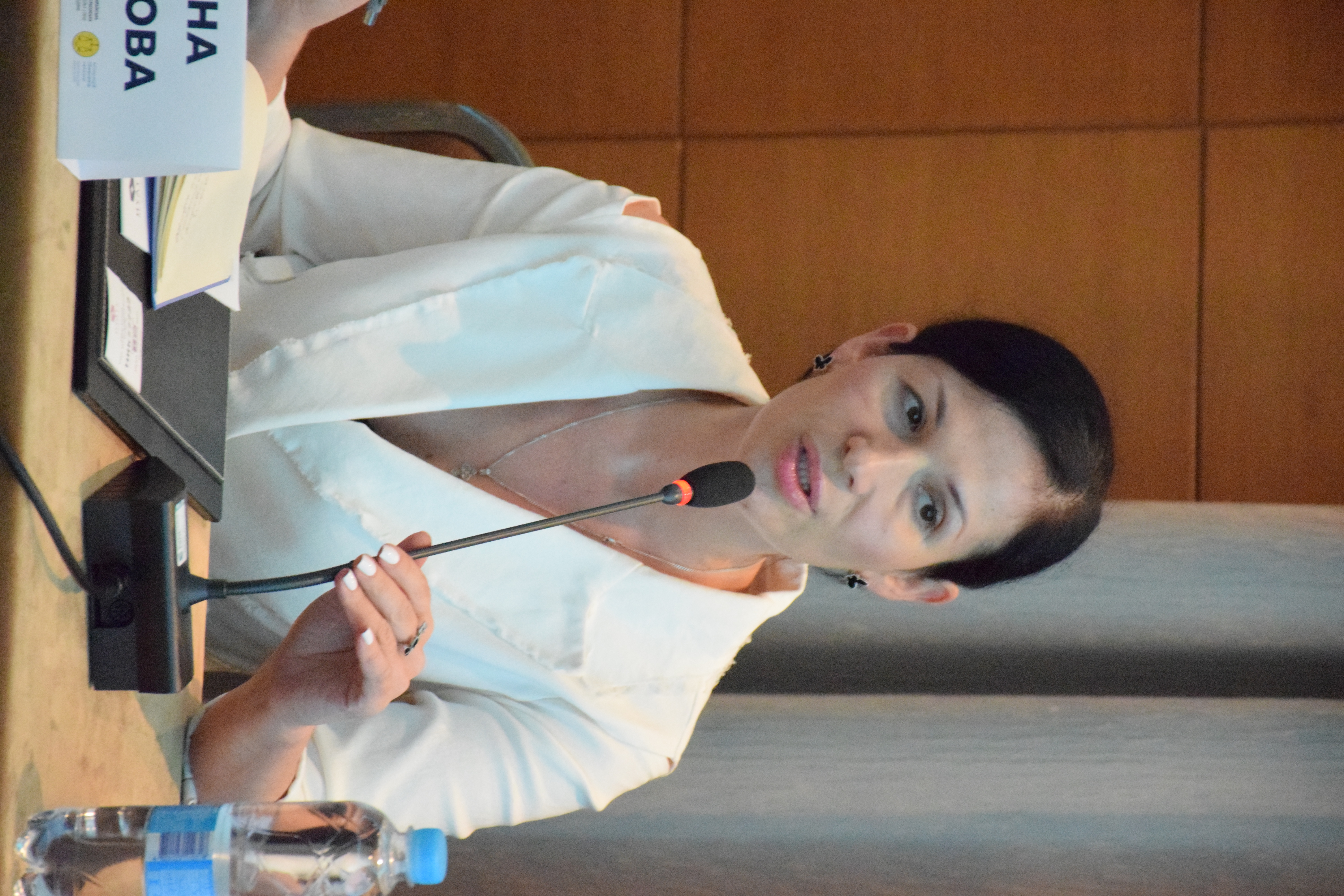
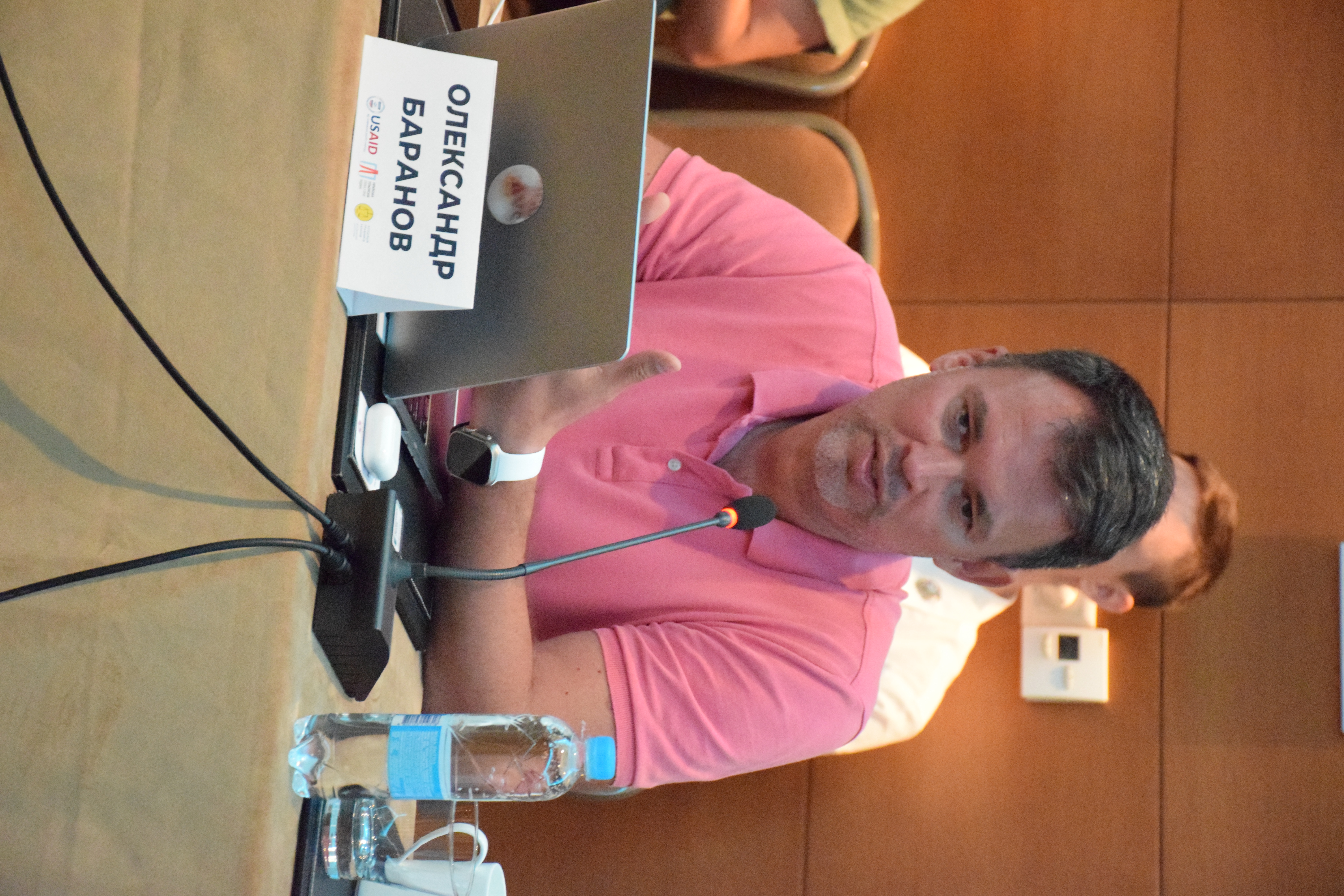
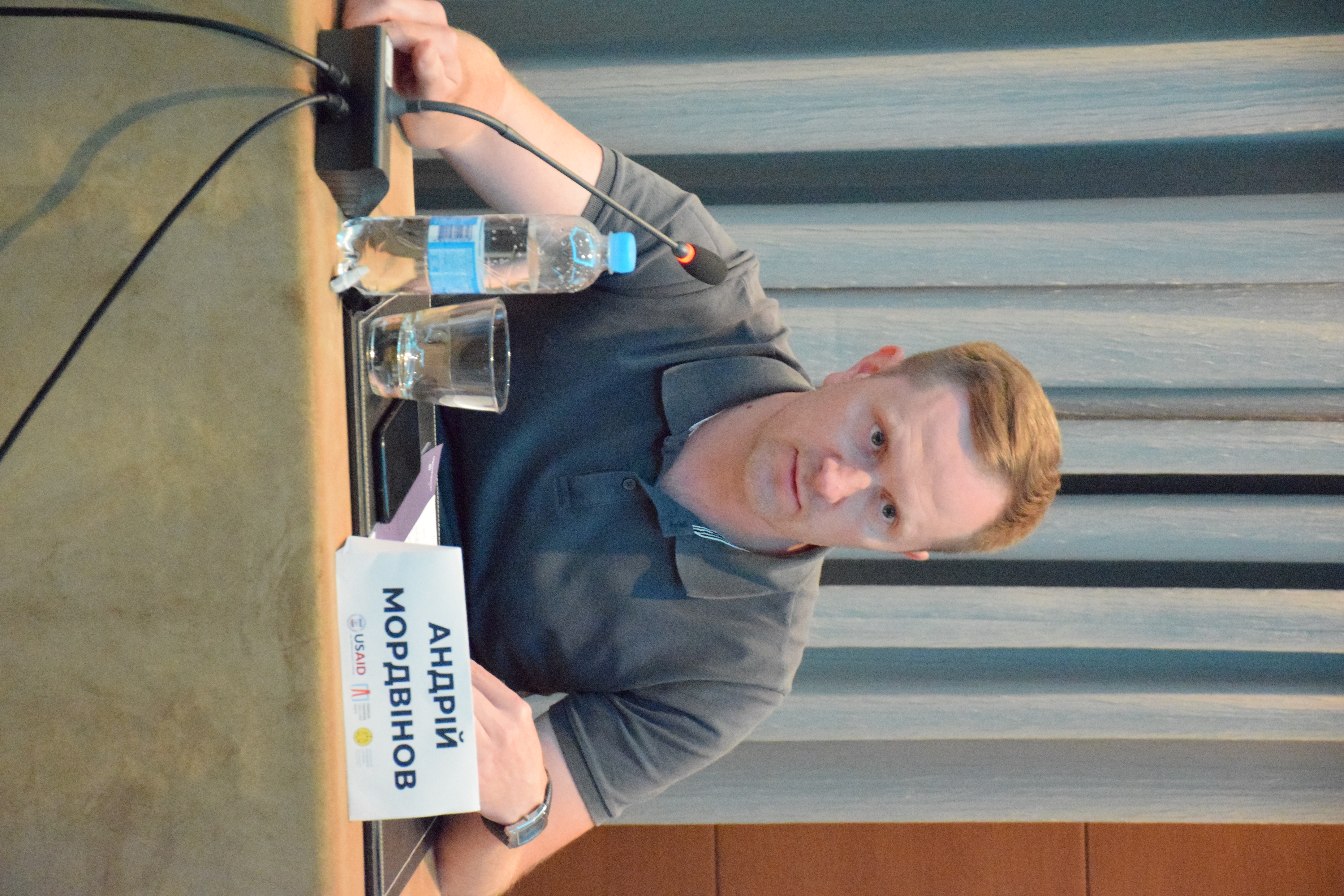
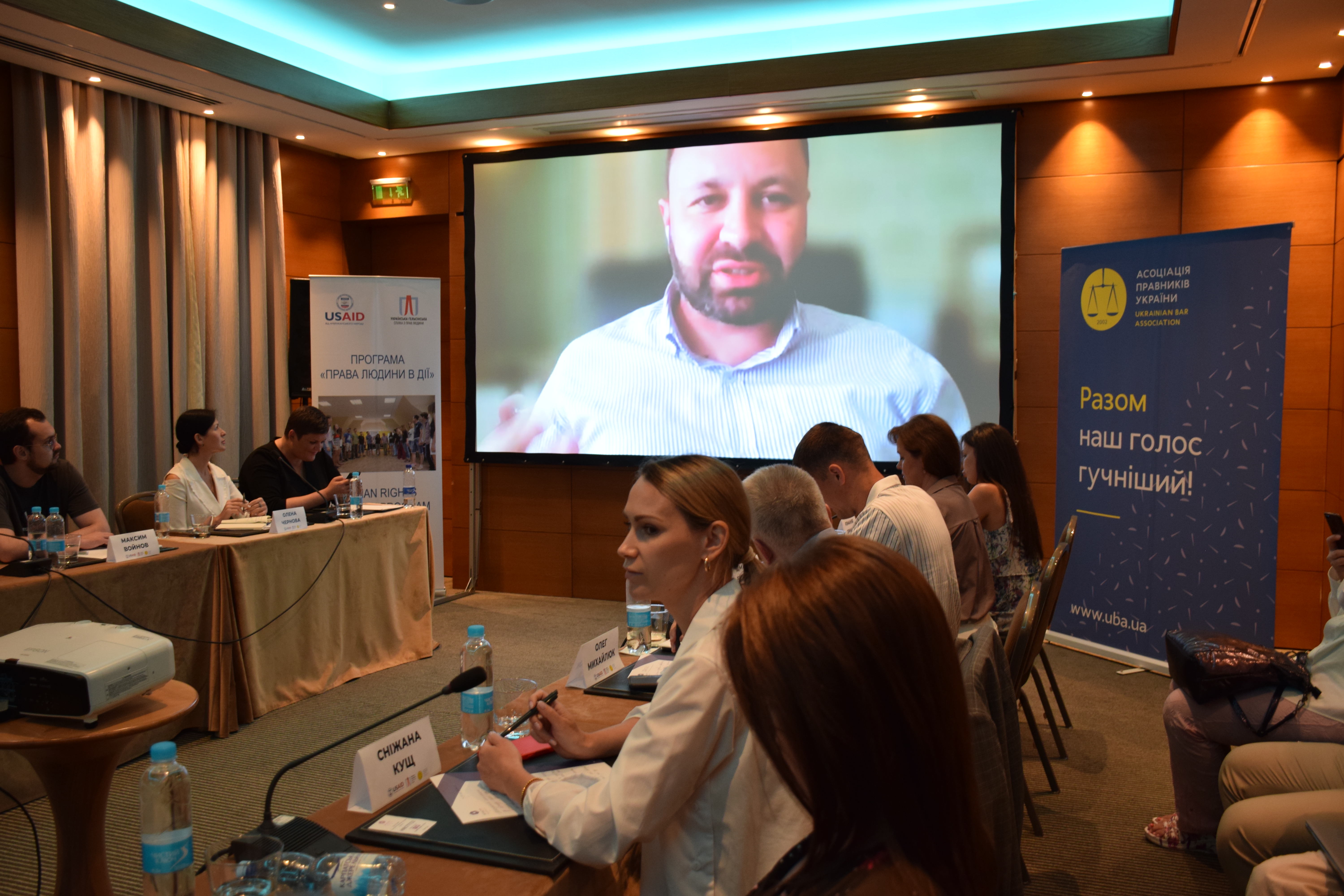
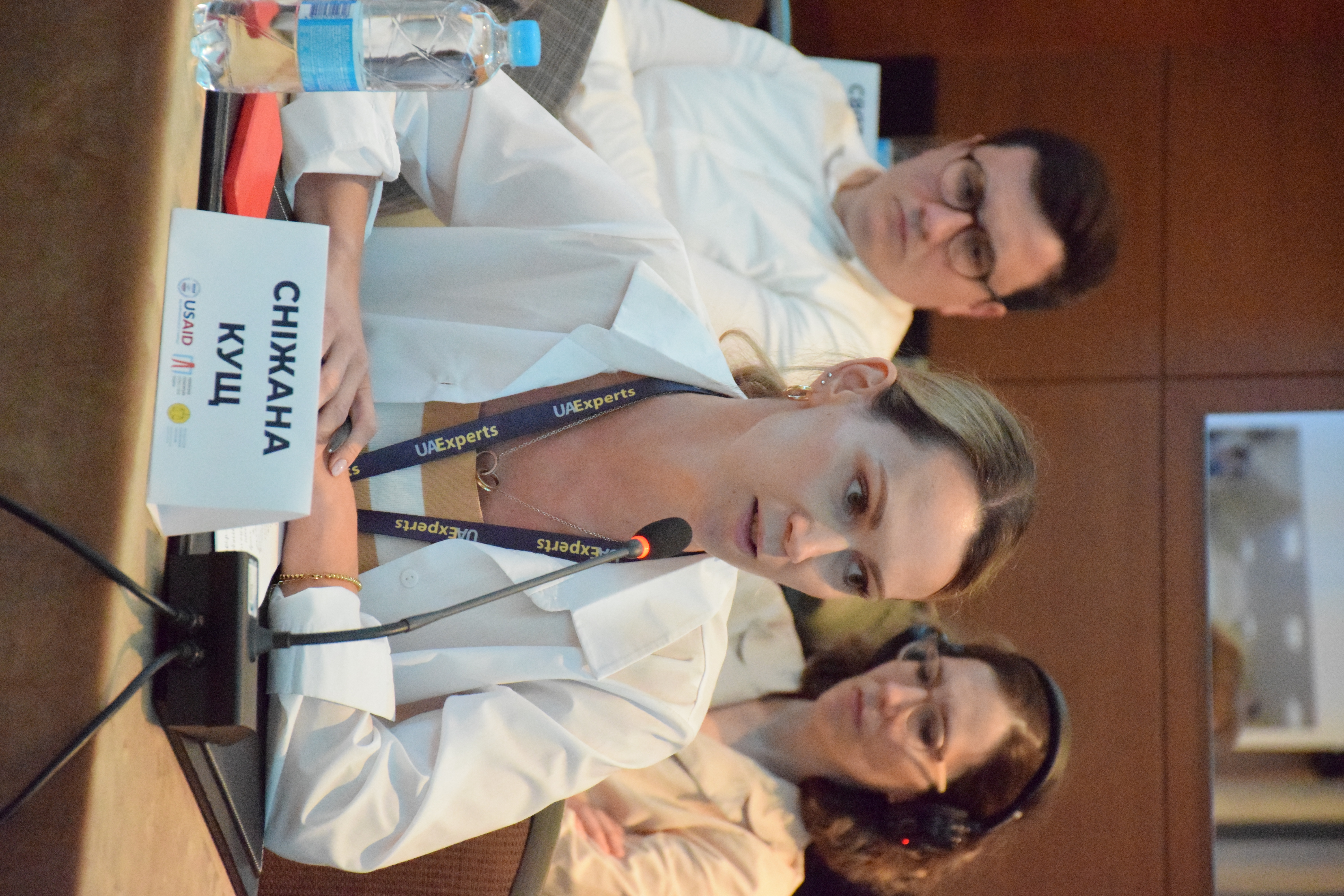
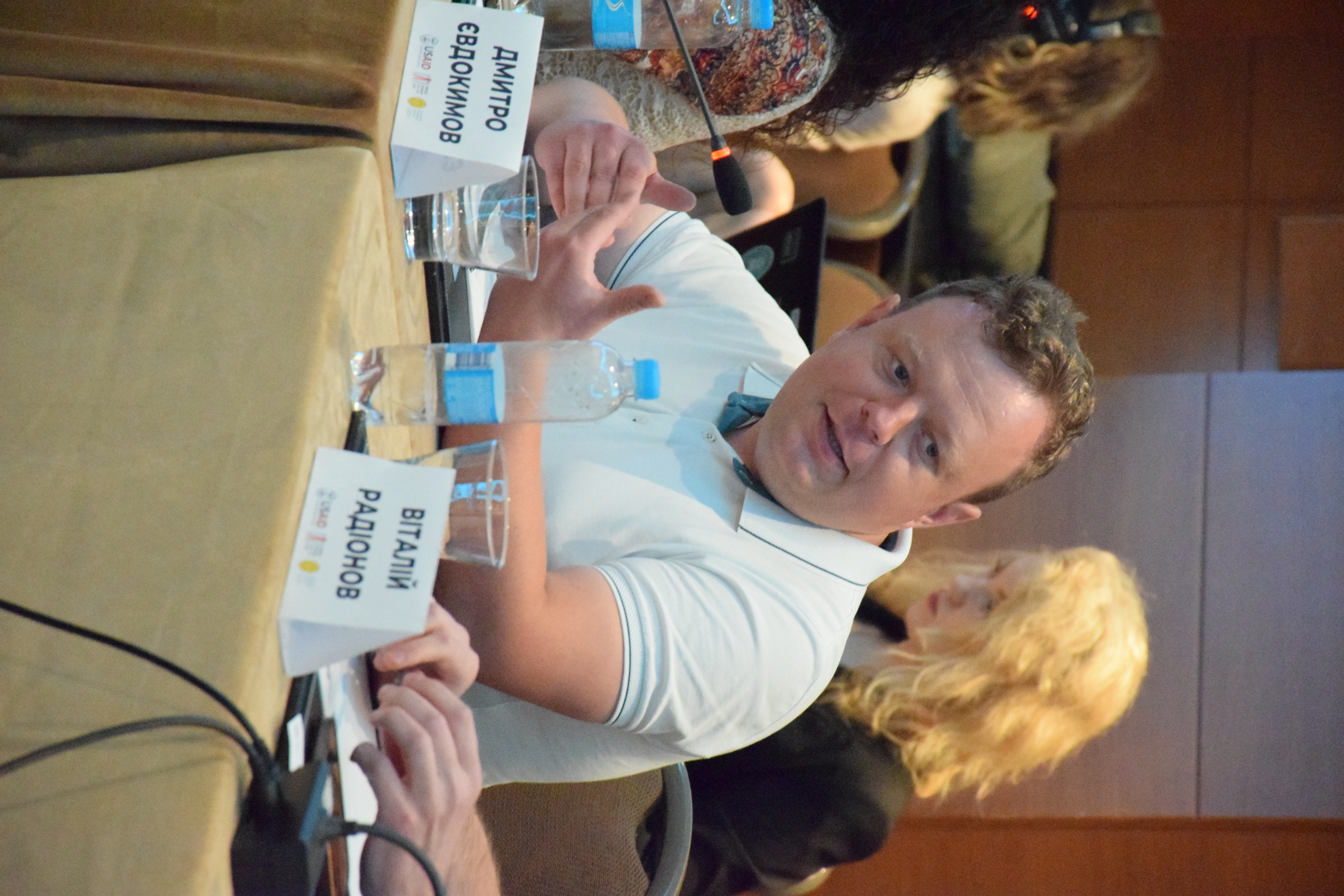
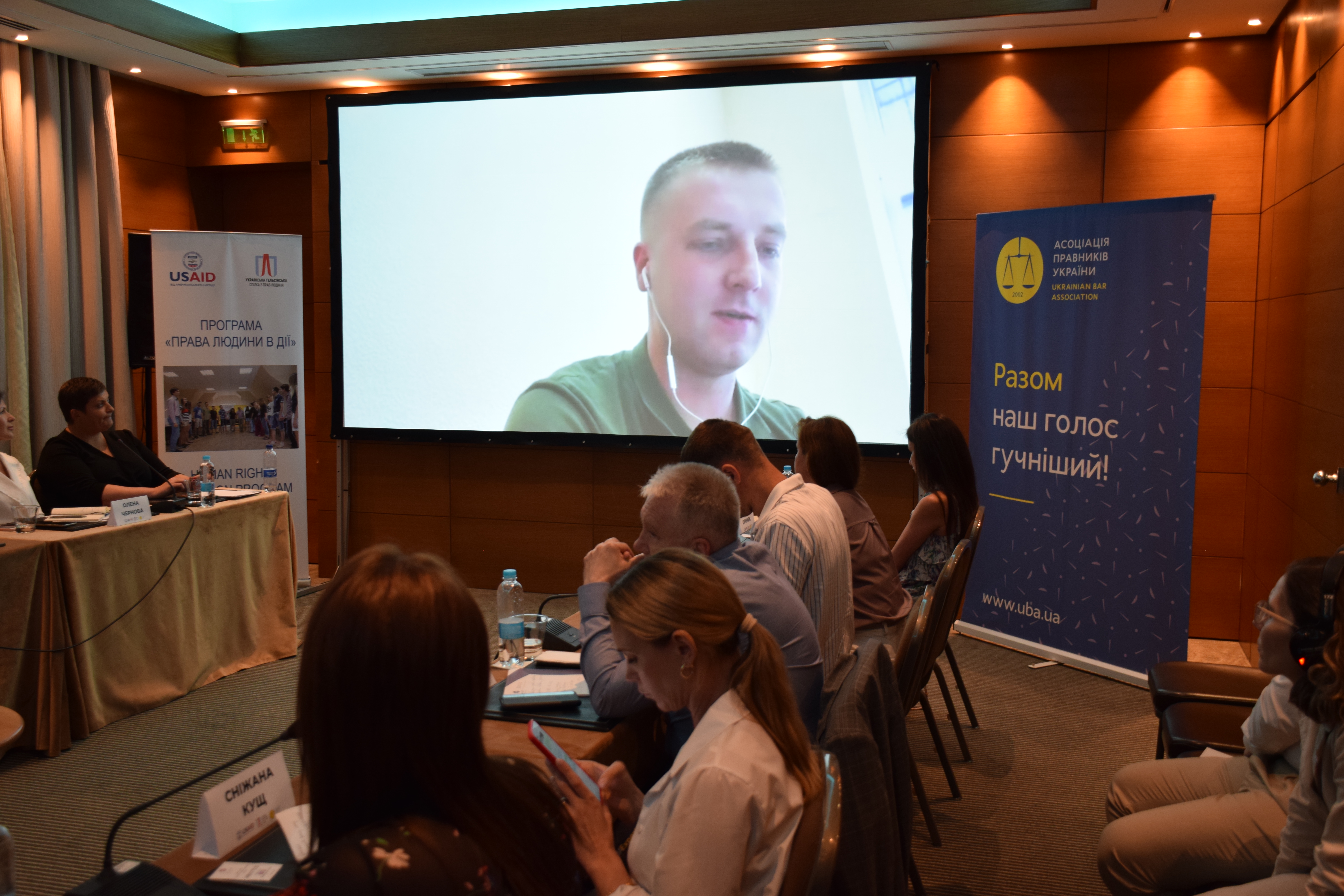
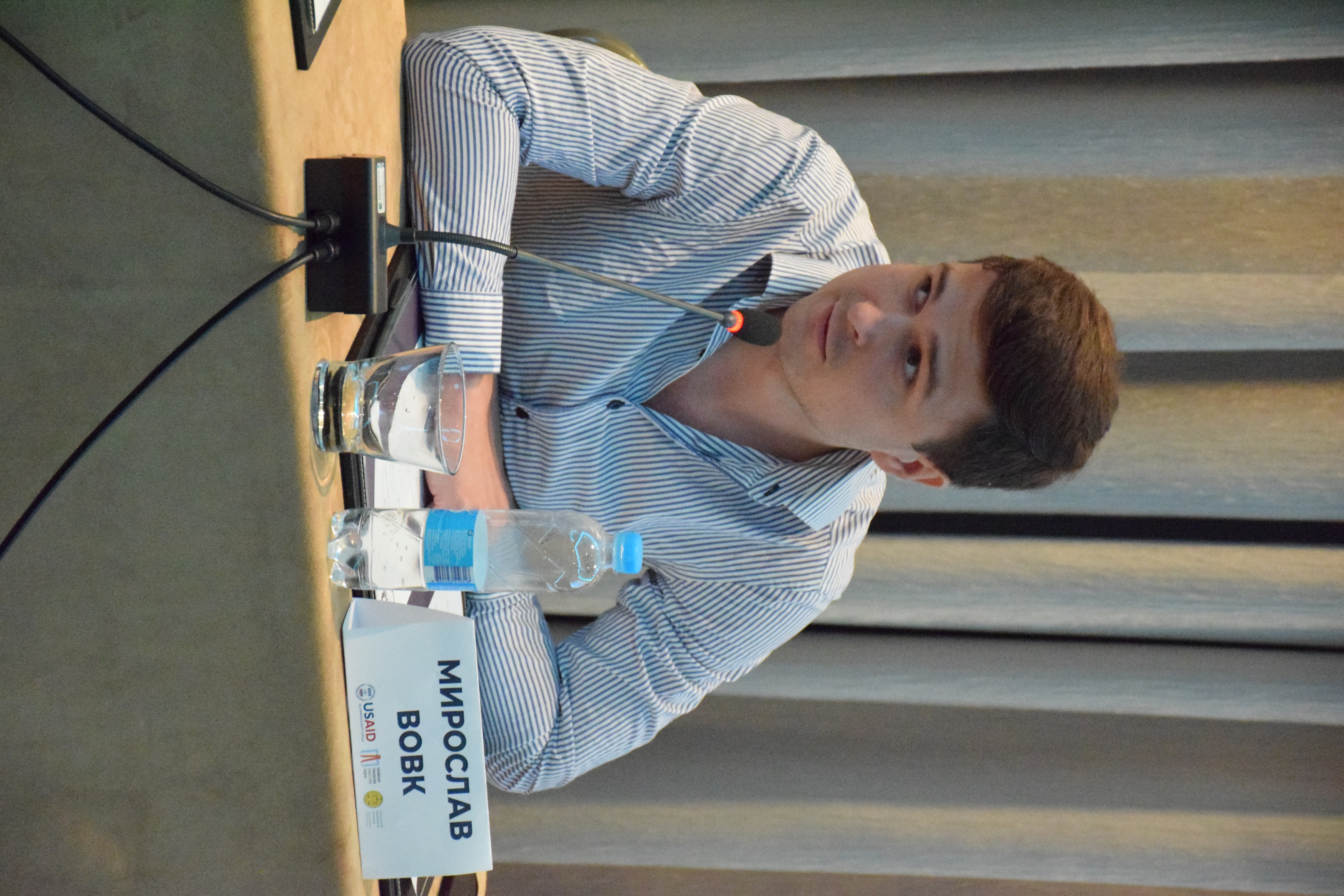
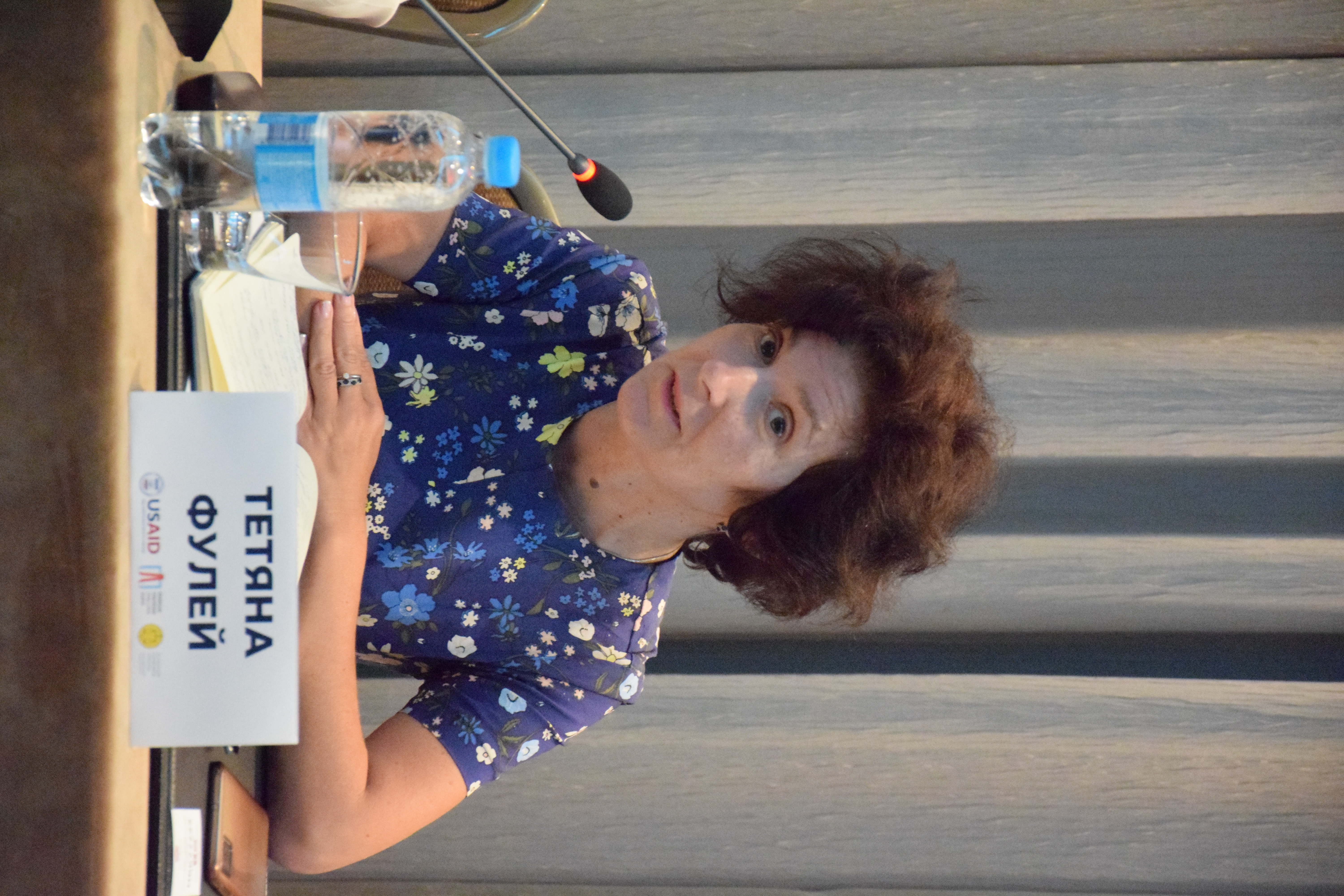
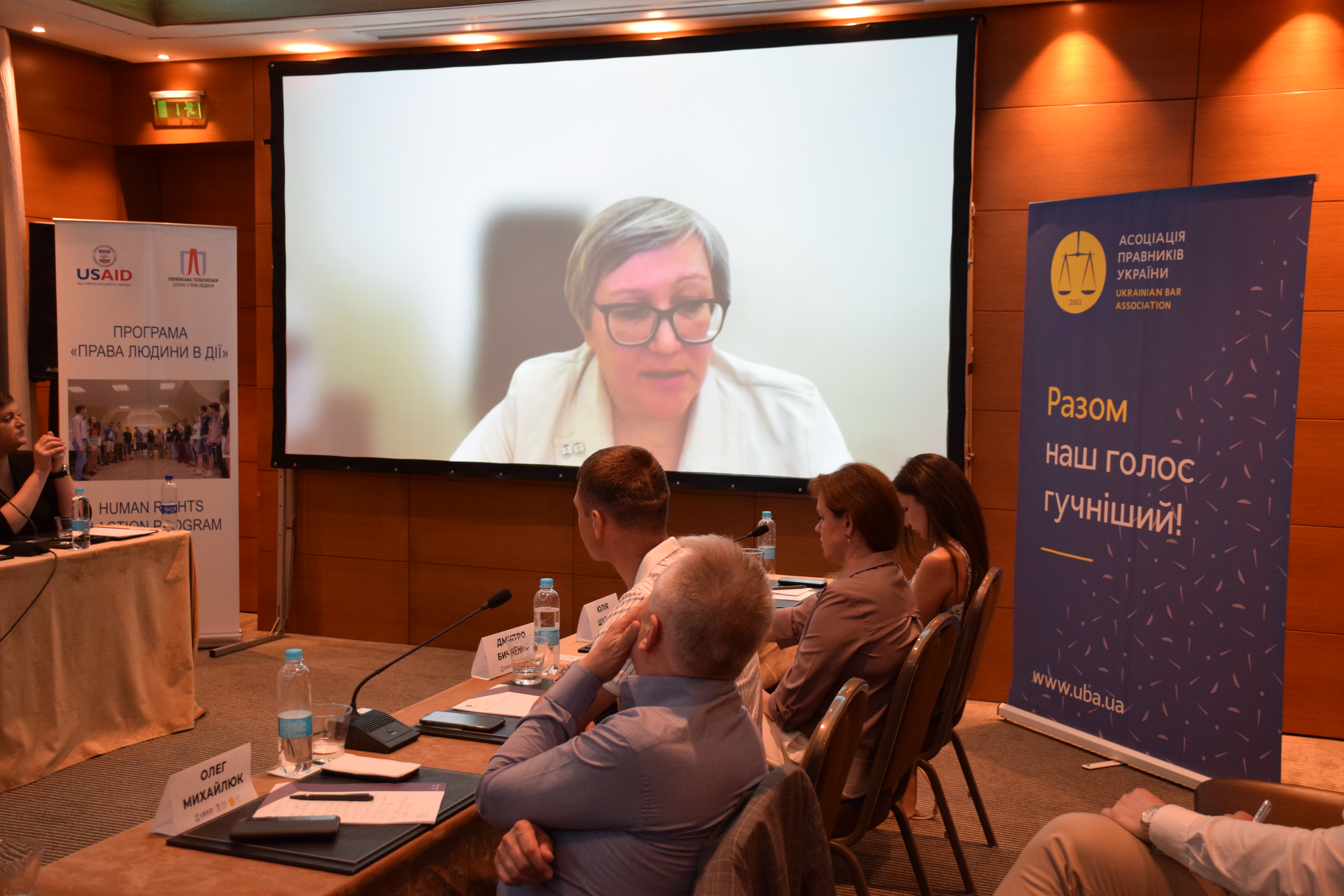
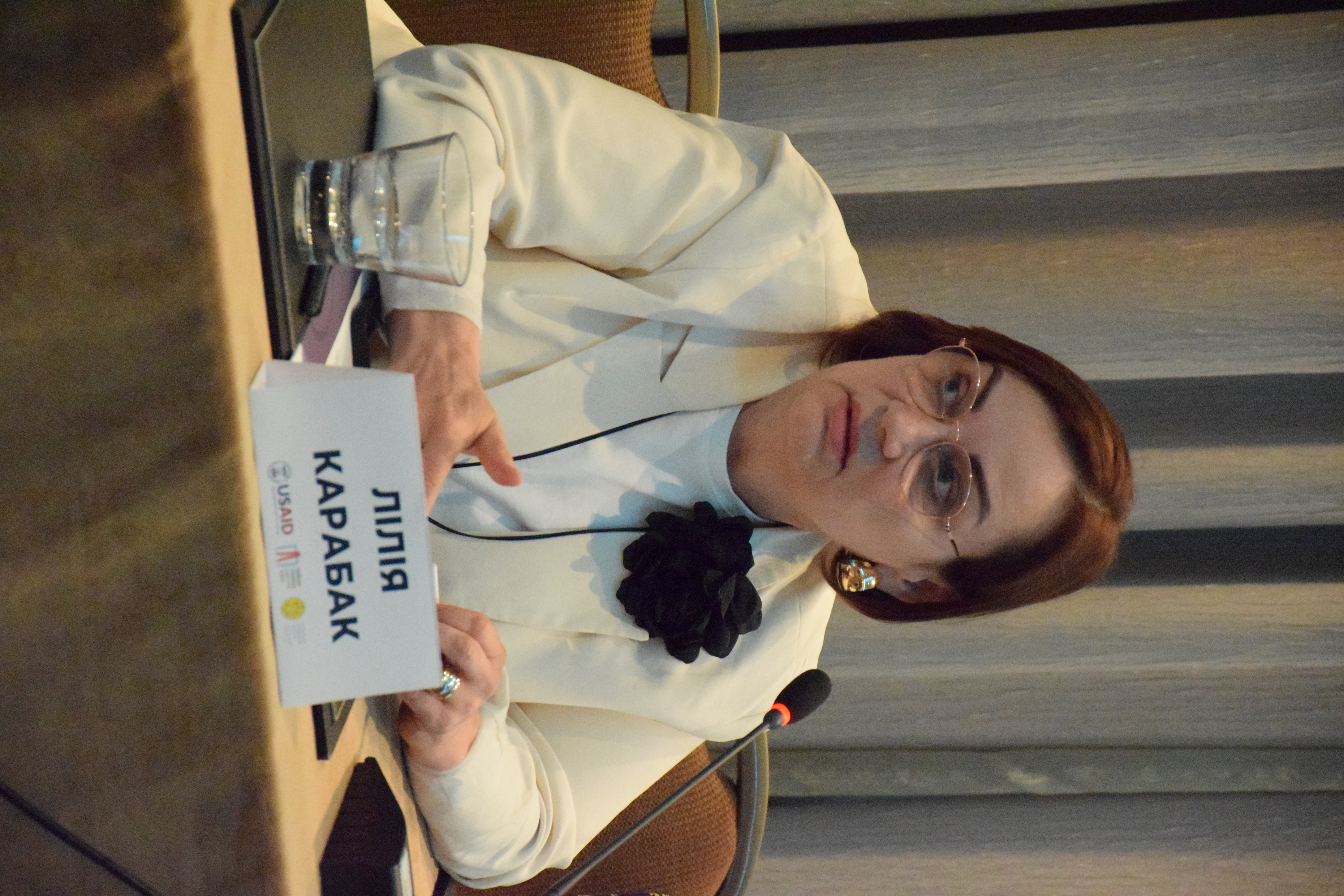
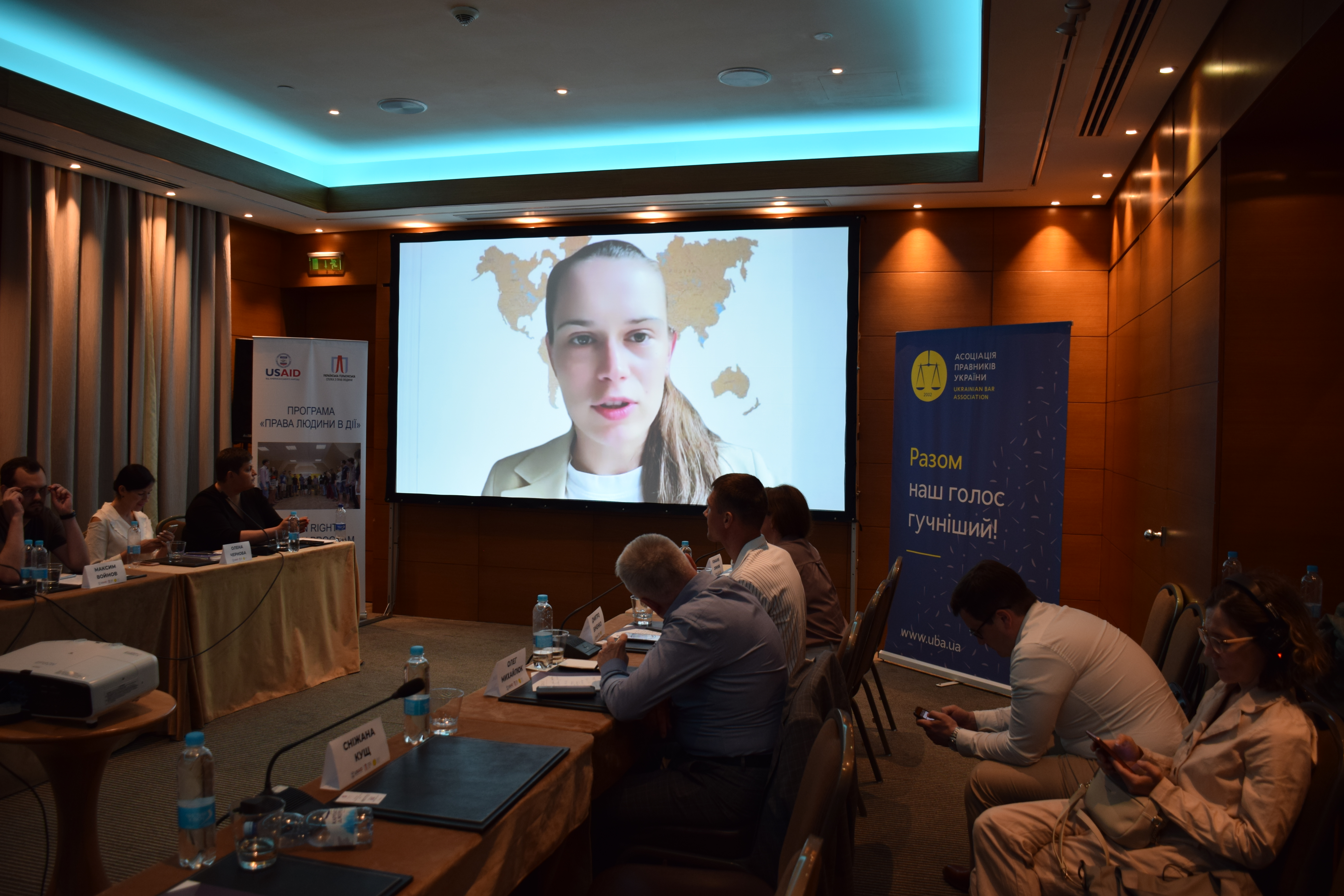
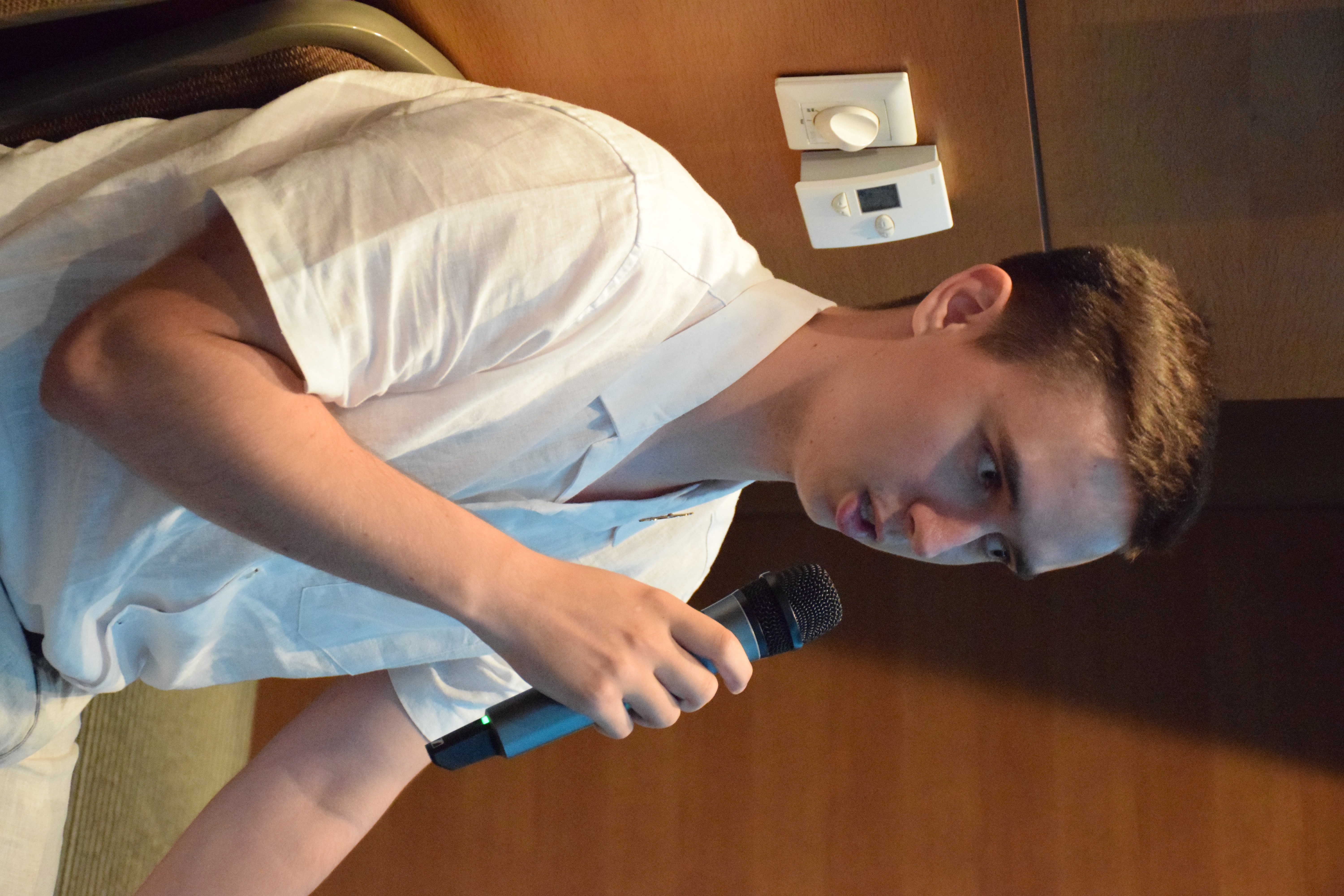
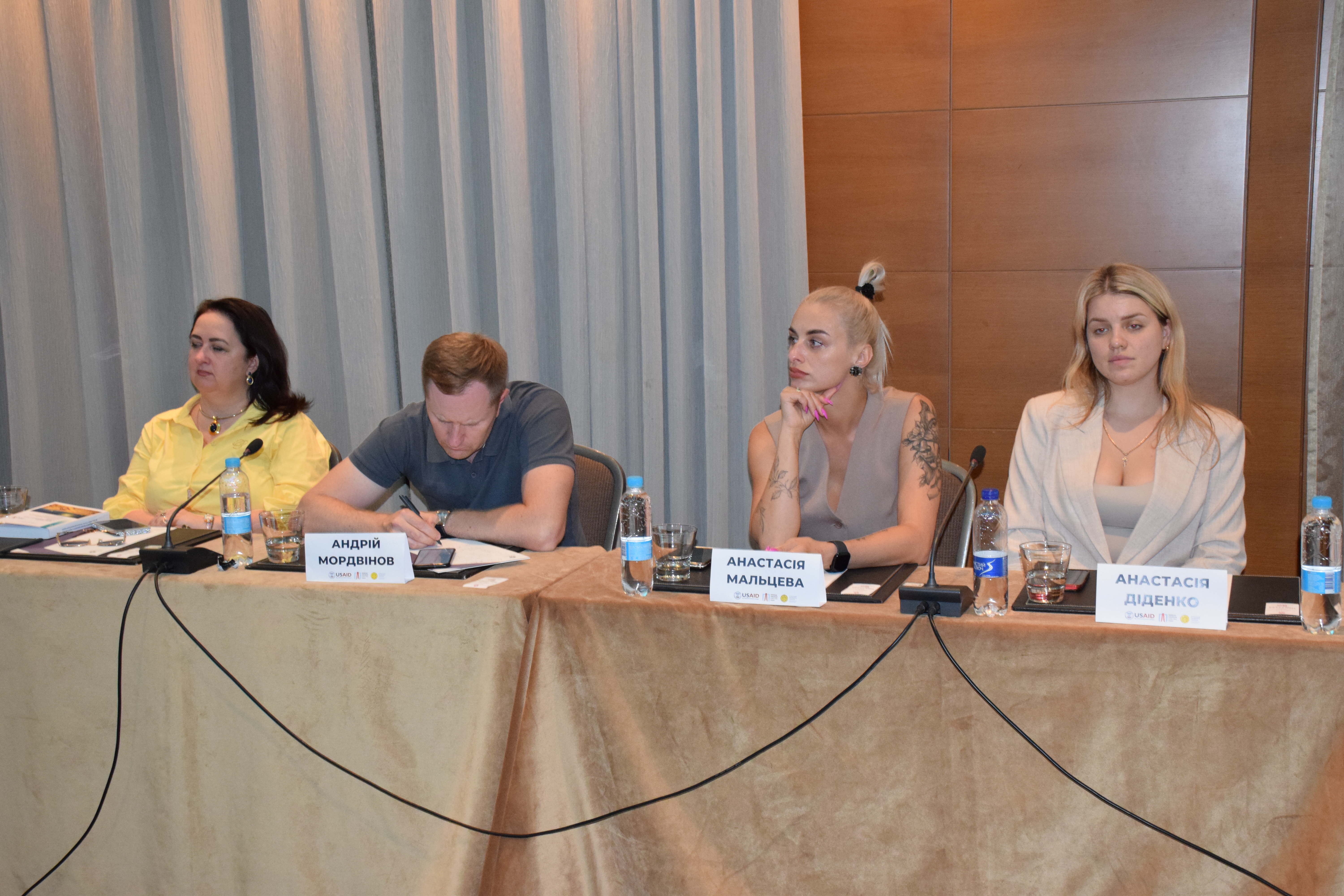
The Ukrainian Bar Association thanks everyone who participated in the discussion for their comments, suggestions, and proposals. UBA continues to work on the report from the second phase of the project, which will be presented soon.
_____
This publication is made possible by the generous support of the American people through the United States Agency for International Development (USAID) in the framework of the Human Rights in Action Program implemented by Ukrainian Helsinki Human Rights Union.
Opinions, conclusions and recommendations presented in this publication do not necessarily reflect the views of USAID, the United States Government. The contents are the responsibility of the authors.
USAID is the world’s premier international development agency and a catalytic actor driving development results. USAID’s work demonstrates American generosity, and promotes a path to recipient self-reliance and resilience, and advances U.S. national security and economic prosperity. USAID has partnered with Ukraine since 1992, providing more than $9 billion in assistance. USAID’s current strategic priorities include strengthening democracy and good governance, promoting economic development and energy security, improving health care systems, and mitigating the effects of the conflict in the east. For additional information about USAID in Ukraine, please call USAID’s Development Outreach and Communications Office at: +38 (044) 521-5753. You may also visit our website http://www.usaid.gov/ukraine or our Facebook page at https://www.facebook.com/USAIDUkraine.
